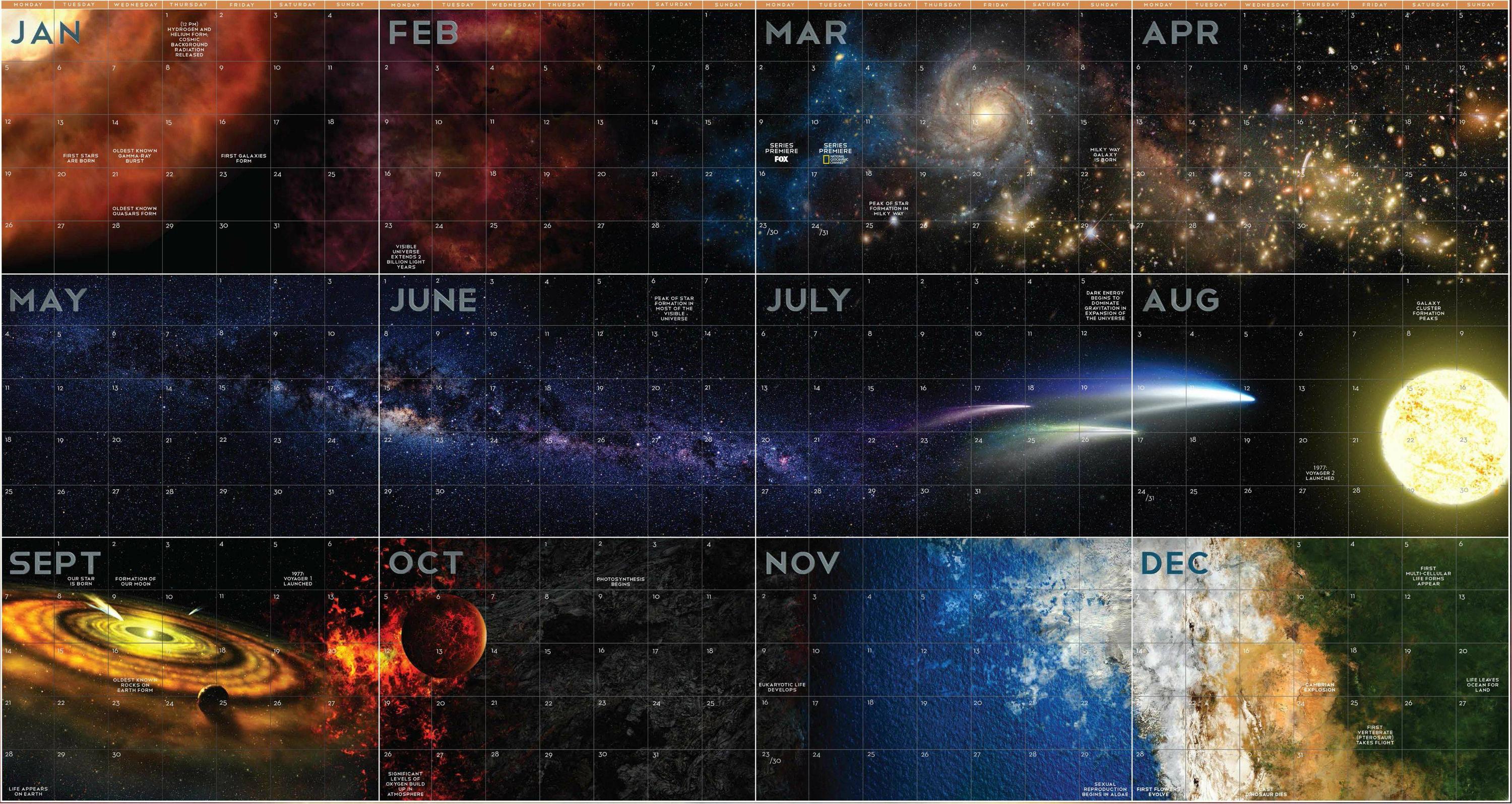What is the Cosmic Calendar?

✍🏻 Mustapha Limar
3 min read
•
Thu Jan 18, 2024
This concept that has been captivating my thoughts, was first introduced to me through the 'Cosmos - A Spacetime Odyssey' National Geographic TV series. Since my initial encounter with this fascinating subject, I've repeated the series over 15 times, and I watch it with the same level of excitment every time.
Space has always been the main focus of my curiosity. Ever since I was a child, I would often ascend the stairs at night to gaze alone at the star-filled sky. I constantly strive to view it with the same wonder as I did back then. This enduring curiosity has driven me to explore various ideas and theories about the cosmos and nature in general. The concept of the cosmic calendar is one such idea that retrigged this profound level of curiosity and wonder in me.

Image from : stellarastronomy
This perception was mainly popularized by Carl Sagan, an American astronomer, astrophysicist, and science communicator. He introduced the concept in his television series "Cosmos: A Personal Voyage," which aired in 1980. Sagan used the Cosmic Calendar as a metaphor to illustrate the scale of cosmic time and the relatively brief existence of human history within it.

“Every one of us is, in the cosmic perspective, precious. If a human disagrees with you, let him live. In a hundred billion galaxies, you will not find another.” -Carl Sagan.
This approach is based on the idea of taking the entire history of the universe which is 13.8 billion years and compress it down to a single earth year. At this scale each month represents a little more than a billion years, and a day is about 40 million years.
This is what time would look like more accurately:
- One year in the Cosmic Calendar represents 13.8 billion years in real time.
- Therefore, one month represents about 1.15 billion years.
- One day represents about 37.7 million years.
- One hour represents approximately 1.57 million years.
- One minute represents about 26,300 years.
- One second represents roughly 438 years.
In this scale, the Big Bang occurs at the first second of January 1st, and the present moment is the last second of December 31st.This allows us to see more clearly how recent some of the events that seem ancient to us really are in the grand timeline of the universe. And this is what intrigued me so much that I got really hooked to this concept.
Why does it matter?
Well, let's think about it, if you looked at the universe through this lens, it would make a big impact on how you think and how you conceive historical facts, you'll understand that we're very new to the universe, and the time we humans have been here is nothing compared to the time that has passed since the Big Bang, and all the recorded human history takes place only in the last minute of the last hour of the last day of the cosmic year, and every person you've ever heard of, lived their life somewhen in this minute.
still being written 📝 ...